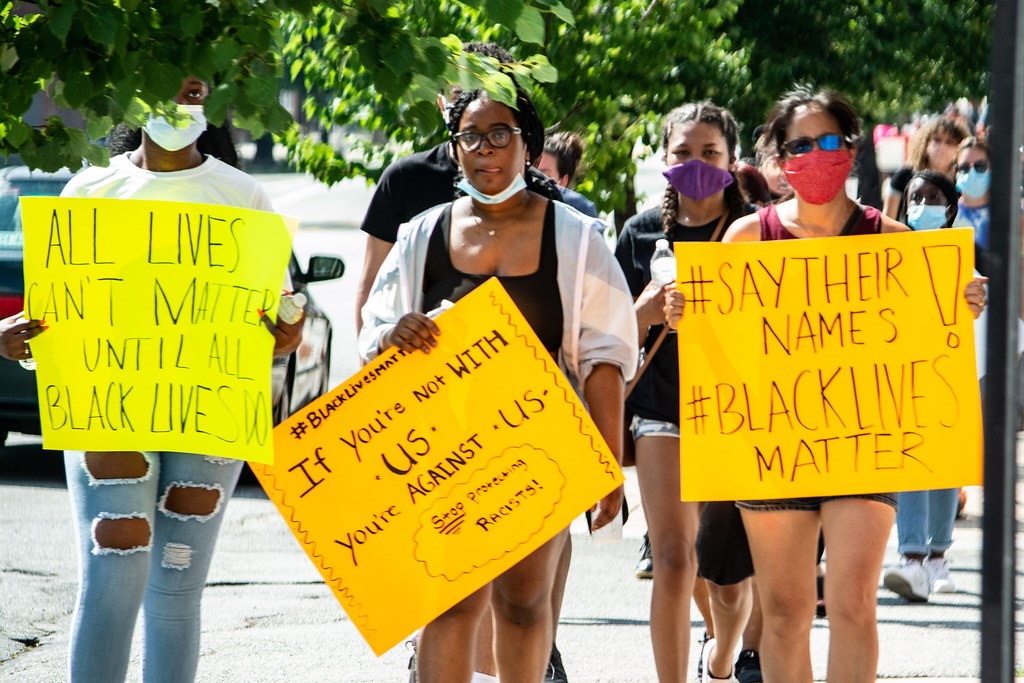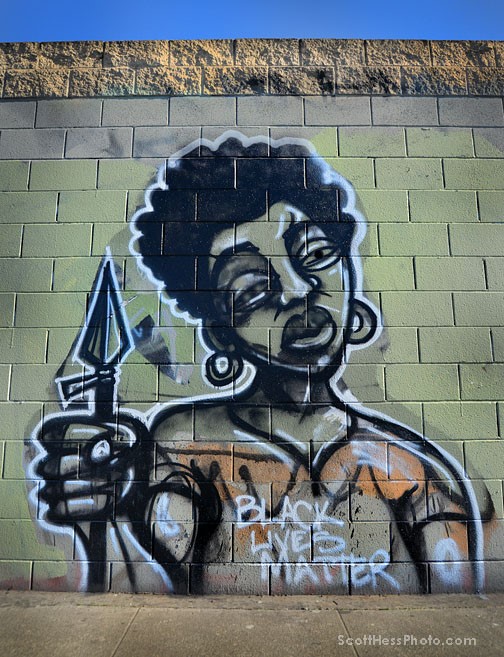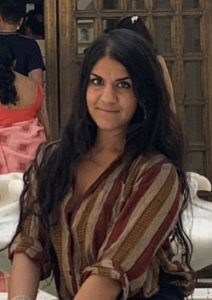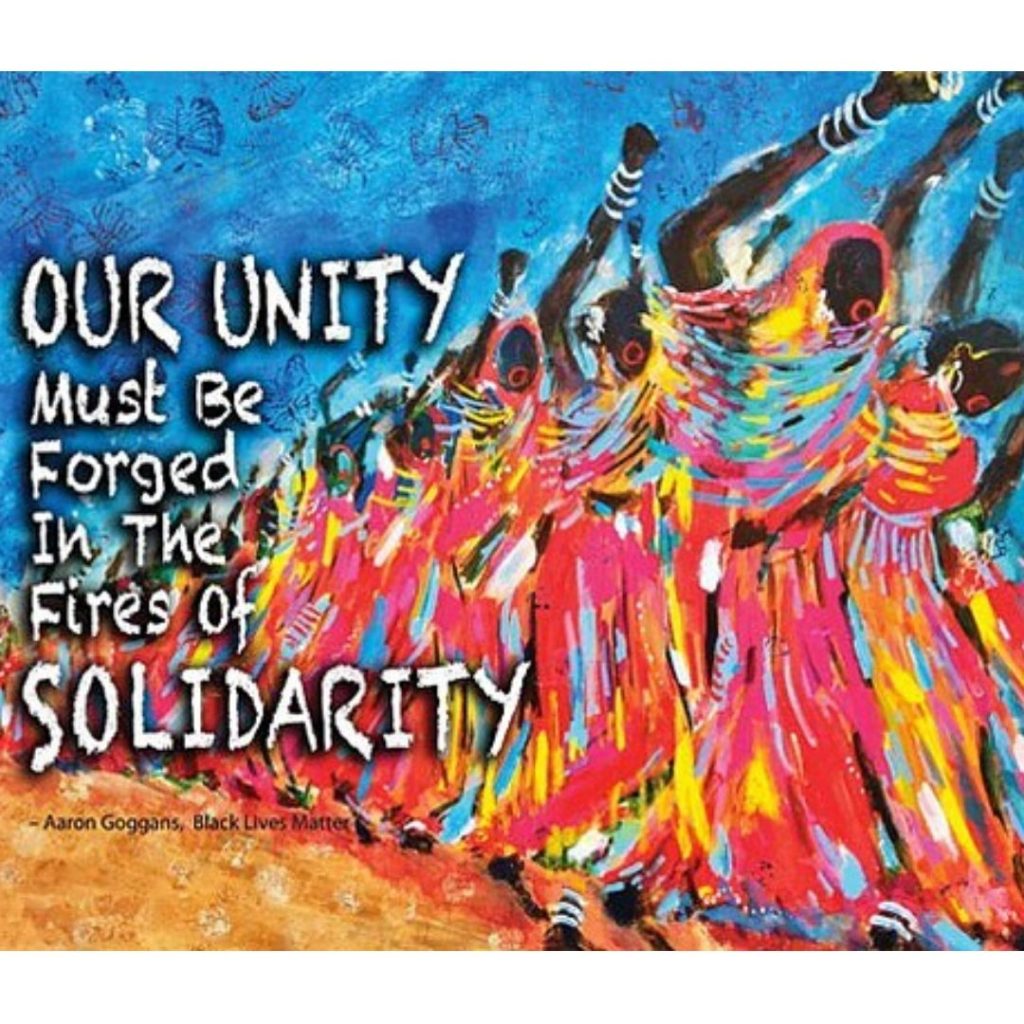484 people reached on Lassi with Lavina FB page – 37 engagements – Facebook Insights
Cheryl Braganza’s Rise Together Solidarity Painting Overlain with a Quote from Aaron Goggan (Black Lives Matter) Source: Heidi De VriesGuest Column by Kareena Pamani
Racism in America, Casteism in India
Is there a Connection?
As a first-generation American born to Indian immigrant parents, the following message is intended to address my fellow Indian-American community and beyond.
[dropcap]I[/dropcap]n the wake of the Black Lives Matter protests that erupted across the United States and soon over the world as a response to the racially charged murder of George Floyd and countless other Black folx*, on what side of history are you willing to stand? We must reflect on who chooses to use their voice as an ally versus those who choose to stay silent and complicit in the epidemic of racism against the Black community. Why was it so easy for some in our Desi community to refrain from speaking on this injustice? Did those who stayed silent think it was an issue that did not concern them? Would these same people have spoken up if it involved their own community?

[dropcap]A[/dropcap] study on pain empathy reveals that implicit racial biases affect the degree to which one may empathize with another from their out-group who is in pain. Reactions tracked through nervous system responses showed that White participants reacted more to the pain of a White model whereas Black participants reacted more to the pain of a Black model. This highlights the principle of social identity theory, which hypothesizes that individuals create in-groups (us) and out-groups (them) to foster a sense of belonging through group membership.
In-group members tend to bolster their self-esteem by comparing themselves favorably with out-groups, also known as in-group favoritism. This favoritism allows for members within in-groups formed by racial categorization to be more likely to listen to, hear, and be influenced by others within their group membership. Thus, the onus must be on Desis to have conversations within our in-group about the racism and individual biases that exist and perpetuate anti-Black sentiment within our community and beyond.
In a well-constructed and delivered digital exclusive segment of the Patriot Act, a socio-political comedy show on Netflix, Hasan Minaj calls out the rampant anti-Blackness in the Desi community. His video garnered millions of views and was shared far and wide both within and beyond my Desi community. Comments under the video include Desis finally acknowledging their problematic role in perpetuating racism towards the Black community and applauding Minaj for lifting the veil on racism that runs largely unchecked in our community. Minaj’s Indian-American identity along with his comedic standpoint allowed him to connect to Indians across the diaspora.
[dropcap]F[/dropcap]or those in our community that may ignore the daily lived realities of Black folx* living in America, calling out racism could start with calling-in Desis on the issue of casteism back home. India’s caste system is a form of social stratification and oppression that perpetuates inequity. Although Indian society was divided into these arbitrary hierarchical groups thousands of years ago, the segregated system still persists today. Those at the ‘bottom,’ Dalits, also known as ‘Untouchables,’ continue to face discrimination and prejudice. Both racism and casteism segregate and further marginalize already disadvantaged groups.
*The spelling folx is used instead of ‘folks,’ as an all-encompassing umbrella term to remain inclusive of the LGBTQIA+ community. The ‘x’ denotes a gender-neutral term

Photo Credit: Scott Hess Flickr via Compfight cc
[dropcap]T[/dropcap]his letter is not to say that racism and casteism are two equal evils, but rather a call for Desis to begin having these hard conversations with family, friends, and their larger communities perhaps by using familiar ideas. Apathy towards other members of our global community is not and never will be the answer in moving towards a more equitable and collectively conscious society.
We must condemn racism in America as we condemn the idea of casteism in India.

Kareena Pamani is a masters’ student in the International Educational Development Program at the University of Pennsylvania. She has served as an educator in public and charter schools for grades K – 4 in New York City since 2015. In addition to teaching within general education and integrated co-teaching classrooms, she has worked one-on-one with a young adult with Autism Spectrum Disorder to develop daily living skills.
Kareena earned her bachelor’s degree in Early Childhood Education/ Special Education and Psychology from New York University. She is passionate about social justice and disrupting educational inequity. Her areas of interest also include curriculum development, teacher professional development, and girls’ education. She currently runs a blog, The Education Room, which aims to break down the traditional walls of a classroom. Follow the blog page on instagram @theeducationroom.

